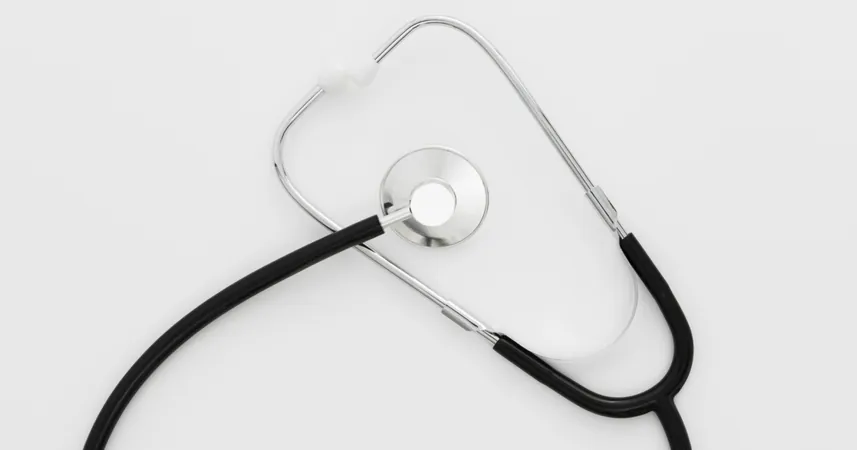
6 Must-Have Vitamins and Minerals for Healthy Aging: Expert Insights
2024-11-16
Author: Wei
As we age, our nutritional needs evolve, and a balanced diet becomes paramount to support vital bodily functions—from bone health to immune resilience. Notably, older adults face a higher risk of vitamin deficiencies compared to younger counterparts, according to research published in *Clinical Interventions in Aging*.
Your primary source of essential vitamins and minerals should come from your diet. However, for those on specific medications that may deplete nutrients or have restrictive diets, doctors often recommend supplements or multivitamins. But with so many options, which vitamins and minerals should you prioritize for graceful aging? We consulted experts for their insights!
1. Magnesium
Magnesium is crucial for numerous bodily processes, including muscle strength, blood sugar regulation, and cardiovascular health. Dr. Jacob Teitelbaum, an expert in integrative medicine, highlights that magnesium is involved in over 300 biochemical reactions in the body. An unprocessed diet typically provides around 600 mg of magnesium daily, yet the average American consumes under 250 mg due to processed foods. The recommended daily intake is 400-420 mg for men and 310-320 mg for women, with increased needs for pregnant or breastfeeding women.
Deficient magnesium levels can elevate the risk of metabolic syndrome, leading to serious conditions like heart attacks and dementia. Symptoms may include fatigue and muscle pain. Rich sources of magnesium include nuts, seeds, whole grains, leafy greens, and even dark chocolate. However, Dr. Brukner cautions that while supplementation can be beneficial for certain individuals, excessive magnesium can cause gastrointestinal issues.
2. B Vitamins
B vitamins, particularly B12 and folate, are vital to maintain health during the aging process. B12 collaborates with folate to facilitate the creation of new blood and nerve cells. As we age, absorption efficiency decreases due to reduced stomach acid, necessitating careful attention to B12 intake. Deficiency in B vitamins is correlated with higher dementia risk and cardiovascular issues, especially in those with elevated homocysteine levels.
B12 is predominantly found in animal products, but alternatives like fortified cereals or nutritional yeast exist for those on plant-based diets. Individuals taking medications like omeprazole or metformin may also require B12 supplements.
3. Calcium
Essential for maintaining bone density, calcium's importance escalates for older adults prone to bone loss. The National Institute on Aging recommends 1,000 mg daily for men aged 51-70 and 1,200 mg per day thereafter. Women should aim for 1,200 mg daily after the age of 51. Inadequate calcium intake can lead to weakened bones, necessitating intake from dairy products, leafy greens, or fortified foods. However, excessive calcium can lead to complications like kidney stones, making consultation with a healthcare provider essential before starting supplementation.
4. Vitamin D
Known as the sunshine vitamin, Vitamin D is absorbed through the skin but often becomes scarce during winter months or in limited sunlight regions. It plays a critical role in calcium absorption, making it essential for bone health. Foods rich in Vitamin D include fatty fish, fortified dairy products, and cereals. Studies suggest that inadequate Vitamin D levels can increase susceptibility to autoimmune diseases and may heighten cancer risk. Given these associations, physicians might suggest Vitamin D supplementation, particularly for those at risk of osteoporosis.
5. Omega-3 Fatty Acids
These vital fats are integral for brain and heart health. Since the body cannot synthesize sufficient omega-3s, they must be obtained through diet or supplements. Experts, including Dr. Brukner, indicate that omega-3 fatty acids possess anti-inflammatory properties, which can be particularly beneficial for the aging population, promoting memory retention and potentially reducing Alzheimer’s onset risk. While fatty fish like salmon are excellent sources, vegetarians may consider flaxseeds or walnuts, noting that these provide a less readily usable form of omega-3.
6. Zinc
Zinc is critical for maintaining a robust immune system, particularly as we age. Research highlights zinc's role in combatting age-related chronic illnesses. Deficiency can worsen the decline in immune function, increasing the risk of infections. Notable dietary sources include shellfish, red meat, poultry, nuts, and seeds, particularly oysters which are exceptionally high in zinc. Like other minerals, moderation in supplementation is key, as excess zinc can disrupt the balance of other vital minerals.
In conclusion, prioritizing these six vitamins and minerals can significantly enhance your quality of life as you age. Consider discussing these dietary elements with your healthcare provider to optimize your intake and support healthy aging!


 Brasil (PT)
Brasil (PT)
 Canada (EN)
Canada (EN)
 Chile (ES)
Chile (ES)
 España (ES)
España (ES)
 France (FR)
France (FR)
 Hong Kong (EN)
Hong Kong (EN)
 Italia (IT)
Italia (IT)
 日本 (JA)
日本 (JA)
 Magyarország (HU)
Magyarország (HU)
 Norge (NO)
Norge (NO)
 Polska (PL)
Polska (PL)
 Schweiz (DE)
Schweiz (DE)
 Singapore (EN)
Singapore (EN)
 Sverige (SV)
Sverige (SV)
 Suomi (FI)
Suomi (FI)
 Türkiye (TR)
Türkiye (TR)